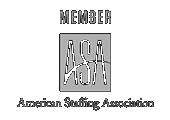
-
Services
Services Overview
Drug & Health Screening
Financial & Business
Identity
Monitoring
Onboarding
Verifications
Our Cloud-based Technologies
-
Industries
Industries we serve
-
Resources
Industry Insights
For Suppliers
- Integrations
- About Us
People First, Always.
Sterling background and identity solutions help you build a foundation of trust and safety
for your employees, customers, and partners around the world.
Best Comprehensive
Enterprise Solution
For the third year in a row, Sterling has won the HR Tech Award for Best Comprehensive Solution for Enterprises. Our Candidate Hub was recognized for providing candidates with a modern background check process.
See What We Offer
Why Sterling?
We believe that every hire is important, and we are committed to helping our clients hire with confidence, speed, and trust. Learn More
Global Market Leader
Deep regional expertise, local service proficiency, and reliable global fulfillment capabilities.
Verticalized Approach
Deep market expertise with services specifically designed to meet the needs of clients’ businesses and industries.
Powerful Technology
Tech-enabled services for simplified client and candidate experiences, robust integrations, and fast turnaround times.
Client-centric Products
Innovative, scalable, and customized solutions that help improve processes and speed.
0M+
annually
0%
close in 1 day
0%+
choose Sterling
Trusted by 50,000+
clients around the world who choose Sterling background screening solutions to help hire, onboard, and monitor employees globally. See Customer Stories















Mary Hassler
Siemens Flex-Force Program

Ebony Brumfield

Jo Scott
Child Safeguarding and Talent
The LEGO® Group


JOANN Fabric and Craft Stores

Explore Services


Recognized by the most respected industry associations in the market.








Learn More
New Industry Report: Hiring Reimagined
1,200 HR professionals and 3,700 recent job seekers shared their thoughts on the state of hiring, background screening, and the candidate experience.
Learn MoreDownload Now
New Guide: HR's Guide to Onboarding
A positive candidate experience can boost ROI, employee engagement, and productivity. Learn how to transform the onboarding process with our new HR Guide to Onboarding.
Download NowGet Started
Make Sure the Candidate You Hired Remains the Employee You Trust
Our post-hire services help you continuously monitor your workforce, ensuring a better, safer workplace for your employees and customers.
Learn about Workforce Monitoring